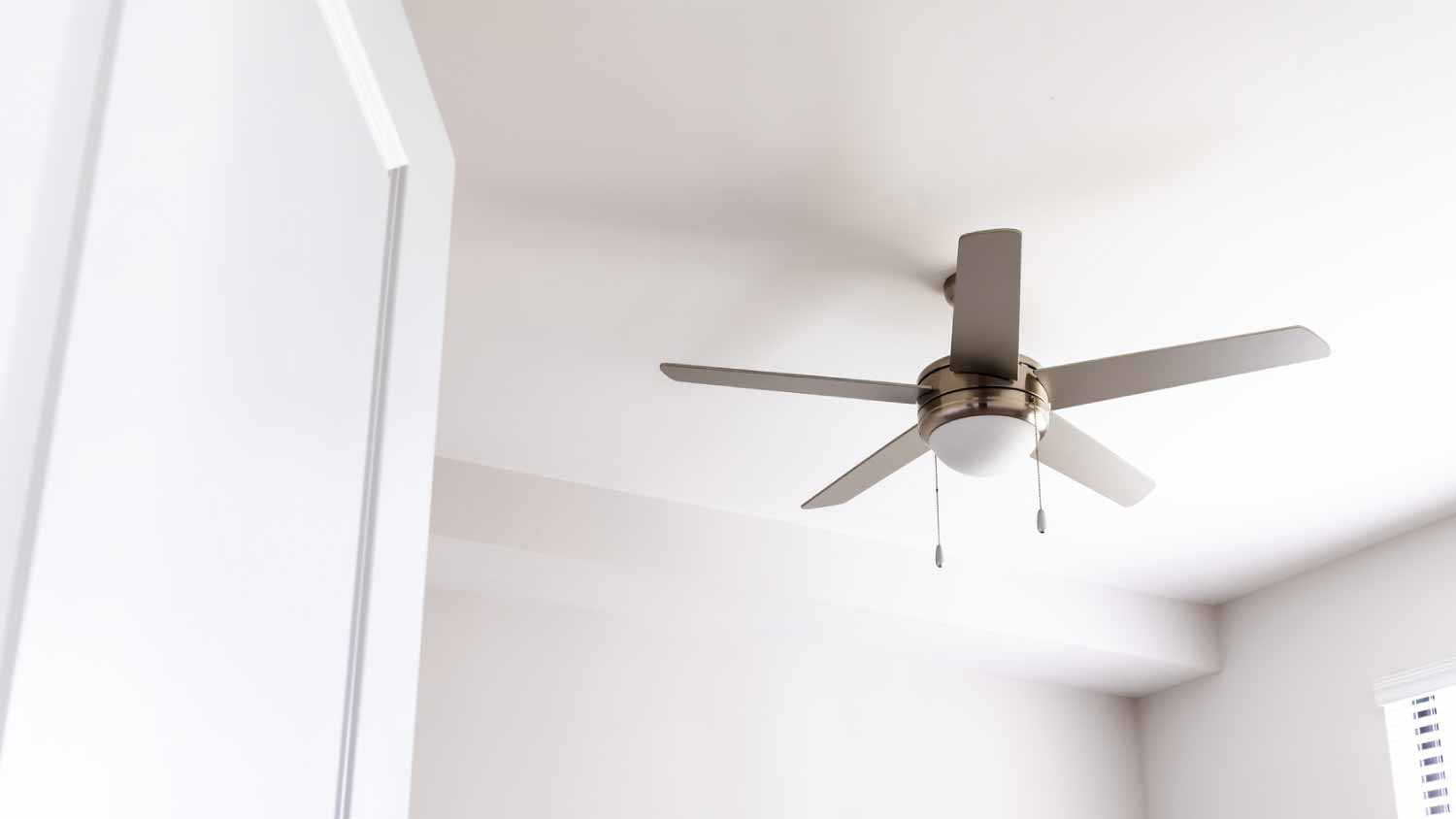What Is Freon? Everything You Should Know About the Refrigerant
This aging AC refrigerant is still keeping things cool—but it’s on its way out


The EPA is phasing out the use of the refrigerant Freon.
Older model ACs and refrigerators often use Freon.
You should look for signs of a Freon leak.
You probably don’t give your air conditioner a second thought—at least until it breaks. As long as your home cools down, everything’s chill. Spring a refrigerant leak, and you might find yourself sweating on the phone while asking your HVAC tech, “What is Freon?”
Over the years, Freon(™) has transformed from a brand name into a catch-all term for the refrigerants that keep ACs and refrigerators cool. Although the Environmental Protection Agency (EPA) is phasing it out, there are a few things you need to know about Freon in older appliances.
What Is Freon?
Freon is the registered brand name of liquids and gasses used for refrigeration purposes. Older model air conditioners, refrigerators, chest freezers, and dehumidifiers use Freon. A 25-pound canister of Freon costs $75 to $175 per pound, and most systems need six to 15 pounds.
Freon is a powerful coolant, so it’s best to let a certified technician handle it. It’s also a substance that’s being phased out, as the EPA began banning the use of Freon in new appliances in January 2010. Instead, newer AC units use R-410A refrigerant, which costs about $3 to $8 per pound.
How Does Freon Work?
Depending on the appliance or unit, Freon works in a few different ways:
Air Conditioners
Air conditioning systems contain a compressor, which compresses Freon gas and increases its temperature. The gas then moves into the AC coils, cooling it into a liquid form. The cooled Freon then absorbs the heat from the outside air and pushes the cold air out to cool your home. Don’t ignore possible freon issues, as the leaks can still occur even if your AC is off, and you’ll need an HVAC pro to add freon to the AC unit.
Refrigerators
Freon attaches to the compressor line in a refrigerator and then pushes through the coils. Refrigerators work by causing the coolant circulating inside them to change from a liquid into a gas. This evaporation process cools the surrounding area and keeps the refrigerator air at the desired temperature.
How Long Does Freon Last?
Freon in a normal AC unit should last 10 to 20 years. Your system should not lose more than a pound every few years or more; many systems go their entire life without needing the addition of gas.
How Do I Know If My AC Unit Uses Freon?
Most air conditioning units manufactured after 2003 do not use Freon, though your unit might if it was manufactured before 2010. If you aren’t sure, it’s a good idea to check with the manufacturer or an AC repair company near you.
Though it’s a brand name, Freon colloquially refers to several different refrigerants, which typically contain chemicals known as chlorofluorocarbons (CFCs) and hydrochlorofluorocarbons (HCFCs). R-22 is usually the type you’ll find in an AC, but the EPA has been phasing out various types of these chemicals since the mid-1990s because of their environmental impact. They banned the production of new systems that use R-22 in 2010.
Should I Replace My AC If It Uses Freon?
You don’t necessarily need to replace your AC because it uses Freon—but you might find this type of refrigerant difficult to obtain if your unit springs a leak. As of 2020, you can’t import or manufacture Freon, so you’ll need to use reclaimed or recycled Freon. The costs will only rise as time goes on.
Regardless, most ACs that use this product are nearing the end of their lifespan. If repairs are starting to pile up, you may just want to replace your AC unit, anyway. A full ban on all appliances that use R-22 won’t come into effect until 2030, but it’s highly unlikely that older AC units will last that long.
Warning Signs You May Have a Freon Leak

Improperly-working air conditioners and refrigerators may indicate a freon leak. Here are some telltale signs to look for:
Air Conditioner
Warm air: If the vents in your house are blowing warm air, there may be a leak.
Unusual noises: Hissing or bubbling sounds can indicate a Freon leak.
Frozen coils: Frozen evaporator coils can signal a leak issue.
Dripping water: Some condensation in your AC is normal, but keep an eye out for an excessive amount of water.
High humidity: If your AC is leaking Freon, it may not successfully remove humidity from the air.
Refrigerator
Musty smell: Any new, unusual musty smells may be a sign of a Freon leak.
Residue: Visible residue on the floor around the fridge may be Freon that has leaked out.
High temps: If there’s a Freon leak, your refrigerator may struggle to reach chilly temperatures.
How to Detect a Freon Leak
An AC inspection by a professional HVAC tech will cost anywhere from $50 to $200. Freon leaks are the most common in evaporator coils, but they can also occur in valves, “U” connectors, or the copper lines and tubing.
When calling in a professional to investigate a potential Freon leak, they may detect one using a few different methods:
Bubbles: Soapy water is applied to the suspected Freon leak and will bubble up if there is a leak.
UV dye: A tech will add ultraviolet dye to the refrigerant, which will light up in any detected leaks.
Electronic detector: A calibrated device will detect any leaks; this is a highly accurate method.
Laura Hennigan contributed to this piece.





- Furnace Repair
- Air Conditioning Repair
- HVAC Repairs
- Furnace Installation
- Wood & Pellet Stove Repair
- Dehumidifier & Humidifier Repair
- Heat Pump Companies
- Swamp Cooler Repair
- Wood Stove Services
- HVAC Companies
- Commercial A/C Repair
- Geothermal Installation
- Air Conditioning Installation
- Boiler Repair
- 24 Hour Furnace Repair
- Geothermal Repair
- Heat Pump Repair
- Humidifier Installation
- Thermostat Repair
- Thermostat Installation
- Nest Installation
- Heating & Cooling
- Heating Repair
- Furnace Cleaning
- Furnace Tune-Up
- HVAC Technicians
- Subcontractors
- Furnace Maintenance
- Plumbing & Heating Companies
- Wood Stove Inspection
- Mini Split Installation
- Wall Heater Repair
- Duct Installers
- How to Add Freon to an AC Unit: A Step-by-Step Guide
- Freon Eating Copper Piping in Your Freezer? Here’s What to Do About It
- Signs of AC Freon Leaks and What You Should Do
- Why Is the Outside AC Unit Not Turning On, But the Inside Is? 9 Common Reasons
- The Best Time to Buy an Air Conditioner
- Do Air Conditioners Use Water? They Don’t, So Here’s What That Puddle Is
- How Long Does It Take to Replace an AC Unit? 5 Factors That Impact the Timeline
- 9 Types of Air Conditioners: Pros, Cons, and How to Choose
- 4 Reasons There’s Air Coming Out of Vents When the AC Is Off in Your House
- What Is the Best Temperature to Set Your Air Conditioner to in the Summer?










